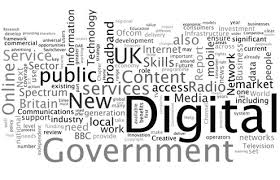Moi. My unit of study results are in and for my last subject with a score of 93% (that's another High Distinction) officially comes the end my friend, of the Masters forever.

...full of 100% stuff that amuses me, or I use as a muse, or happens to catch my eye or fall into my lap...an alternative to it all fiddling about in my brain...


Nina Simon - Over the past year, I've noticed a strange trend in the calls I receive about upcoming participatory museum projects: the majority of them are being planned for teen audiences. A large number of the collaborative projects of which I'm aware (in which staff partner with community members to co-develop exhibits or programs) are initiated with teens. Even the most traditional museums often manage educational programs in which teens develop their own exhibits, produce youth-focused museum events, or provide educational experiences for younger visitors. And while I enjoy working with youth and consuming their creations as a museum visitor, I'd like to call into question the idea that they are or should be the primary audience for participatory experiences.

From Fresh + New(er)
What Marcus has done in the DIY Museums episode is look at how ‘memory institutions’ are dealing with the reality that they are no longer the sole arbiters of collective memory; nor are they necessarily well placed to collect the burgeoning diversity of contemporary culture and cultural expression. As one interviewee says “everything now is a niche, just the size of the niche differs” – and this poses enormous problems for those who job it is to collect. Fortunately, the same digital tools of production that are, in part driving this diversity, are also providing the means for others to collect and present – again, another challenge for established institutions.

The Australian Government released the Australia's Digital Economy: Future Directions paper on 14 July 2009 which outlines:
- why the digital economy is important for Australia
- the current state of digital economy engagement in Australia and why current metrics point to a need for strategic action
- the elements of a successful digital economy
- the role for the Government in developing Australia's digital economy, and
- case studies of Australians who have successfully engaged with the digital economy from a diversity of industries including content, e-health, maps, banking, education, smart technology and citizen journalism.


